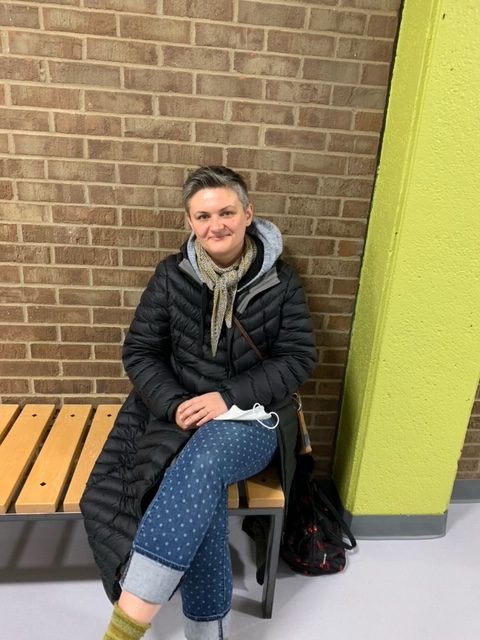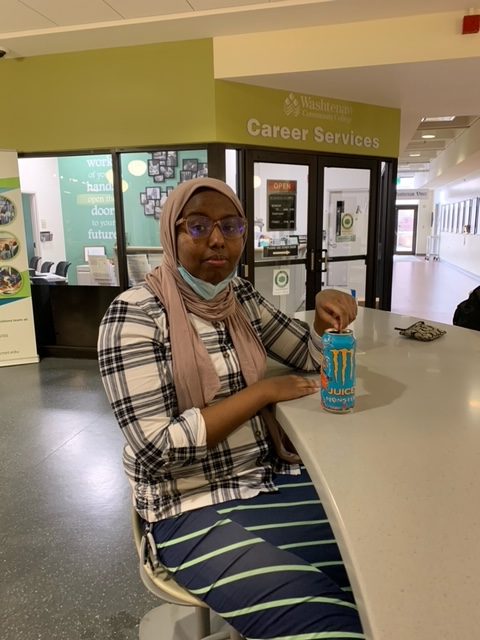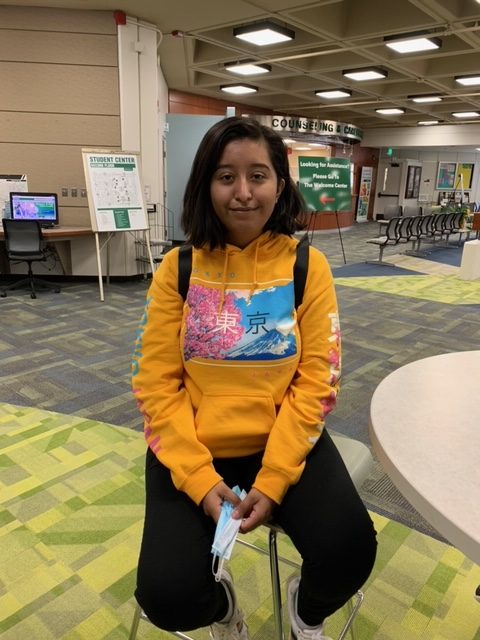
Illustration by Joelyn Armstrong
A glimpse of 3 lives shows women’s drive: International Women’s Day highlights shared and unique challenges
by RUBY GO
Staff Writer
For women in the U.S., along with suffrage came more college degrees. Ever since the 19th amendment was ratified in 1920, there has been a steady increase in the amount of college degrees women are earning, based on data from the National Center for Education Statistics. Today, more master’s and doctoral degrees are given to women than men. The same is true for undergraduate degrees.
Regardless of where they come from, female students in America are a force to be reckoned with.
March 8 was International Women’s Day, and some female students at WCC from around the world were willing to share their stories.
Olga Austin

It’s pretty easy to tell where Olga Austin is from once you hear her talk; she speaks with a heavy Russian accent. She came to America in her 20s to be with her husband, whom she met online.
Austin, 43, wants to become a nurse, and this is her third semester back in school. However, the chance to go back to school was delayed by the birth of her son, who is now 12. Austin had to stay at home to look after her son when he was younger; now that he’s older, Austin feels comfortable leaving him alone while she goes to school. She says a lack of affordable child care is one of the main reasons she had to wait so long to go back to school.
“I always knew I wanted to do school again,” Austin said. “But it was sort of bad timing. I didn’t think I’d be able to manage school as well as taking care of a small child, so I just had to wait.”
When the time came to go back to school, Austin experienced some discouragement from her family in Russia. Being a nurse in America is completely different from being a nurse in Russia, she said.
“Here in the States, nurses can perform many tasks that probably only doctors would do in Russia,” she said. “Nurses are basically just caretakers (in Russia).”
Because nurses in Russia only carry out basic duties, Austin says her family expected her to be overwhelmed by the American nursing profession, and so they tried to talk her out of it. But Austin won’t be bossed around.
“Now is the time. I can finally do something with my life,” she said.
Amal Said

Amal Said is the first generation of her family to be born in the U.S. Said, 15, is a 10th grade student at Washtenaw Technical Middle College, the high school at WCC. She wants to pursue a career in forensic science, and she is currently working towards earning an associate degree in general math and science in order to transfer to a four-year university.
Said’s parents immigrated to America from Somalia during the start of its ongoing civil war. Before being able to come to America, her parents spent some time living in a Somalian refugee camp; however, because they had family that was already living in the States, the process of coming to America was made easier. Said says America feels like home.
“My parents raised me with nothing but love for the country,” she said.
While Said and her family have a positive view of America, they have still experienced what Said calls “subtle” racial and religious discrimination. Being a Black Muslim in America is not without its hardships, she said. But in spite of that, Said’s parents did not want their children to grow up hating the country they call home.
“(My parents) like the country as a whole, and they wanted their children to feel the same,” she said.
One of the biggest hardships for Said is dealing with hearing and seeing disabilities, along with attention disorders, all of which take a toll on her learning progress and mental health. She is currently trying to file for a 504 plan, in which students with physical and/or mental disabilities can be guaranteed certain learning accommodations. In the face of these challenges, Said has grown thick skin.
“You get used to it after a while,” she said. “I’m just doing what I can to try to succeed.”
Yasmin Guadalupe Gonzalez

Yasmin Guadalupe Gonzalez is an artist at heart; for as long as she can remember, she’s always wanted to be an artist, she said. But her ambitions are met with ambivalence.
“It’s hard to find a good job with art,” she said. “A lot of other people I know want to be things like a doctor or an engineer, which are a lot more successful than artists.”
Guadalupe Gonzalez, 20, moved to America from Mexico when she was 8 years old. She says her parents worked tirelessly to earn enough money to move here so she could have a better life. Because of her parents’ hard work to get here, she feels pressured to find a “successful” job so that their hard work would “pay off.” Although she is passionate about art, she feels that becoming an artist would not yield the successful life her parents want her to have.
“I don’t want that difficult life because my parents worked so hard to get us (to America),” she said.
When she first came to America, everything was a shock. One of the biggest adjustments for Guadalupe Gonzalez was learning English while also trying to learn the other regular school subjects, like math and science.
“I had to learn, but I didn’t know how,” she said.
Luckily, one other student in her class spoke Spanish. Thanks to her, learning English became much easier for Guadalupe Gonzalez. While it was still challenging to learn a new language, overcoming that obstacle taught her that she can do anything she puts her mind to, she said.
Looking forward, Guadalupe Gonzalez is trying to find a happy medium between art and a more marketable career; she thinks fashion design is a promising candidate. It’s been hard trying to figure out her future, but she remains level headed.
“I just tell myself to keep moving forward,” she said. “Even if you feel like you have no one, you got to push forward.”
